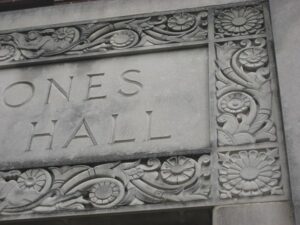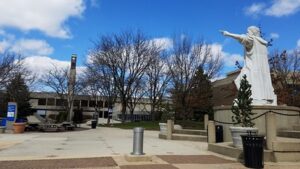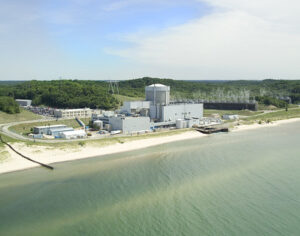A new Harris poll conducted for and published by The Guardian shows that 56% of Americans believe the US economy is in a recession. (It’s not.) Despite the Fed’s best efforts to tamp down inflation by raising interest rates, American consumers haven’t gotten the message. Neither have US employers. Since January, they’ve added nearly a million new jobs.
Nearly half of those polled think that unemployment is at a 50-year high. It’s not. It’s actually at a 50-year low, and the US economy is at (or near) full employment. The GDP, which economists use to determine the status of the economy, has increased steadily throughout the Biden administration. The per-capita GDP has increased by about $10,000 to about $67,700 since 2021.
The status of the US economy is important for community colleges; some people believe that community college enrollment is driven largely by economic downturns. They blame an extremely long economic upswing for enrollment declines.
If this were the case, community colleges should be spending their time and effort building new degree programs and the facilities to support them during an economic upswing. This should help prepare the college for large increases in enrollment when the economy inevitably turns south, right?
Except that community college administrations appear to have taken the extraordinarily long economic summer off. So, as we approach a recession – whenever it does arrive – the community colleges don’t have nearly enough to offer.
I’d be interested to know what the value proposition is of a community college that used its downtime effectively. Community colleges never miss an opportunity to tout their economic impact on their host communities, but how much have these community college administrators cost their communities in terms of lost economic opportunities? What could the community have looked like? Which employers and industries could it have attracted?
Trustees should demand instructional investment
This wouldn’t happen if community college trustees took their oversight responsibilities a little more seriously. If they demanded actual performance from their administrators, the community might be able to weather a recession fairly well.
If trustees demanded significant investment in instruction every year, community colleges could likely deliver the magic that people are counting on. Regardless of the status of the economy community college classrooms would be full, if the Trustees demanded a strategic plan to both answer the current needs of the community and build economic capacity for the future.
A lot of a community college’s money comes from instruction. When you fail to invest in your primary income drivers, you can’t seriously expect to make positive contributions to the local economy for very long. And you shouldn’t spend a lot of time wondering why your classrooms are empty.
Photo Credit: Stephen Velasco , via Flickr
























